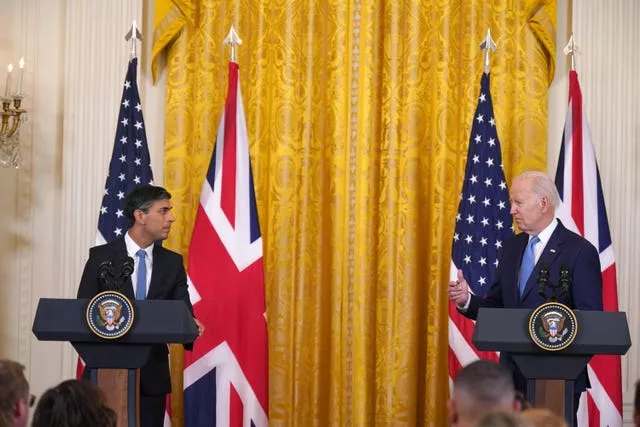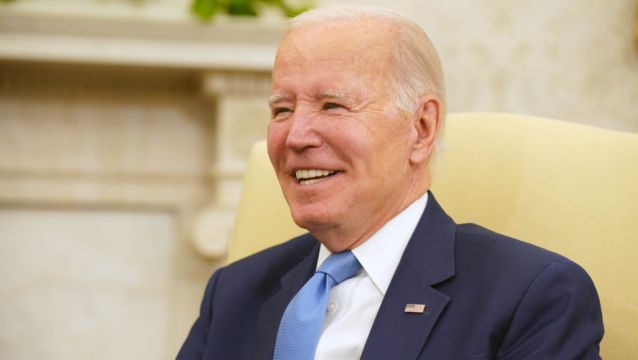Joe Biden has arrived in the UK for discussions on Ukraine with Rishi Sunak, before joining the King for tea and talks on the climate crisis at Windsor Castle.
Air Force One touched down at London Stansted on Sunday evening before the pomp and politics gets under way during the US president’s layover on the way to the Nato summit in Lithuania.
Mr Biden will first meet the British prime minister in Downing Street on Monday morning after defending the “difficult” decision to send cluster munitions to Kyiv.

Mr Sunak responded by saying Britain “discourages” their use as one of 123 signatories of a convention banning the bombs, but No 10 would not say whether he will raise the issue.
The White House said the pair will “compare notes” on the Ukrainian counter-offensive as it makes slow but steady progress in driving out the Russian forces.
The president is likely to raise his concerns over post-Brexit challenges to the peace process in Northern Ireland during their fifth meeting in as many months, a US official said.
Mr Biden’s special climate envoy John Kerry told the BBC the environment will be a “critical component” of their talks.
Though it is not a full-blown state visit, Mr Biden will then be treated to a display of pageantry at Windsor Castle.
He will receive a royal salute and hear the US national anthem courtesy of the Welsh Guards, before having tea with Charles.

They will meet with attendees of a Climate Finance Mobilisation Forum, where finance and philanthropic leaders will have discussed the support they can offer to poorer nations.
On Tuesday, both Mr Biden and Mr Sunak will be in Vilnius for a summit of Nato leaders centring on Ukraine and its bid to join the defence alliance.
Though all allies agree that Ukraine cannot join during the war, a move which would pull the wider West into direct conflict with Russia, the US is seen as most hesitant over its membership.
Mr Biden has described Kyiv’s bid as “premature”. Britain on the other hand has indicated support for a fast-track approach for Ukraine.
The president is also likely to face questions from allies on why he is sending cluster munitions to Kyiv when two thirds of Nato members have signed the Convention on Cluster Munitions.
It prohibits the use, stockpiling or transfer of the munitions, which deploy a large number of bomblets across a wide area, because of the enduring danger they pose to civilians.
Defending the move, Mr Biden sought to justify the bombs as needed to fortify Ukraine’s depleting ammunition stocks after receiving assurances about their use from Kyiv.







